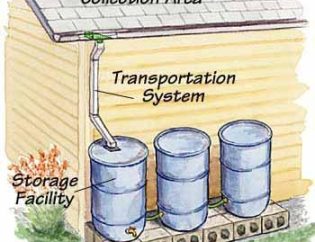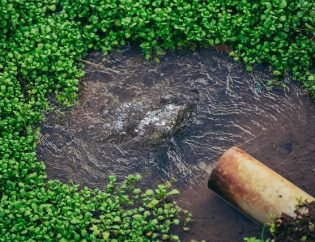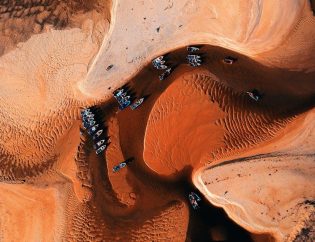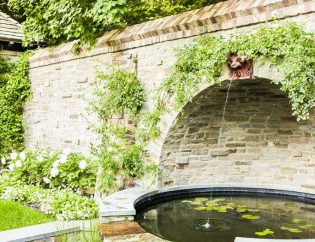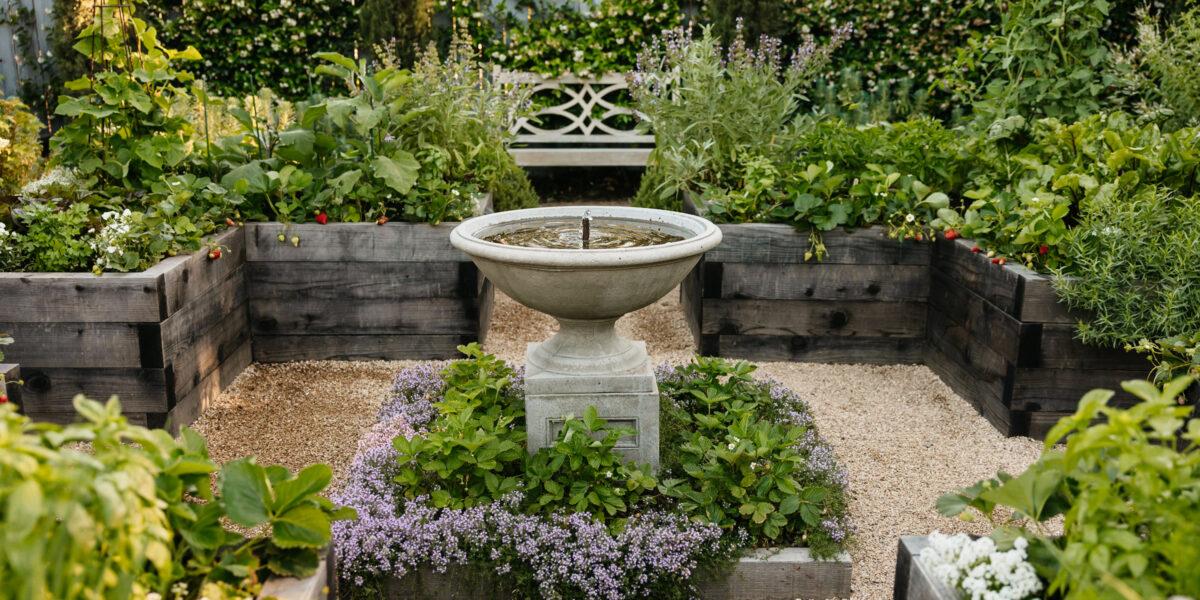

Exploring Sustainable Water Features for San Diego Gardens
When it comes to creating a sustainable water feature for your San Diego garden, the possibilities are endless! From eco-friendly ponds to rainwater harvesting systems, there are so many options to choose from. Not only will these water features help conserve water, but they will also add a touch of beauty and tranquility to your outdoor space.
One popular option for sustainable water features in San Diego gardens is a rain garden. These gardens are designed to capture and utilize rainwater runoff, preventing erosion and reducing the amount of water that flows into storm drains. Plus, they provide a habitat for native plants and wildlife, making them a great addition to any garden.
If you’re looking for something a bit more low-maintenance, consider installing a drip irrigation system in your garden. This system delivers water directly to the roots of your plants, minimizing water waste and helping your garden thrive. It’s a cost-effective and eco-friendly way to keep your garden looking lush and beautiful.
Another fun option for sustainable water features in San Diego gardens is a natural swimming pool. These pools use biological processes to keep the water clean and free of chemicals, so you can take a refreshing dip without harming the environment. Plus, they provide a stunning focal point for your garden and a source of relaxation for you and your family.
Optimizing Rainwater Harvesting Systems in Urban Landscapes
So, you want to make the most out of all that rainy goodness that falls from the sky? Well, you’ve come to the right place! Urban landscapes may not seem like the ideal spot for rainwater harvesting, but with a little creativity and ingenuity, you can optimize your system to make the most out of every drop.
First things first, you’ll need to assess your space and figure out where you can install your rainwater harvesting system. Look for areas where water tends to accumulate naturally, such as near downspouts or in low-lying areas of your yard. Once you’ve found the perfect spot, it’s time to get to work!
Next, consider installing a rain barrel or cistern to collect rainwater. These come in all shapes and sizes, so choose one that fits your space and needs. Don’t forget to add a filtration system to keep debris out and ensure your water is clean and safe to use.
Finally, get creative with how you use your harvested rainwater. From watering your garden to washing your car, the possibilities are endless. Plus, you’ll be saving money on your water bill and helping the environment at the same time. So go ahead, get out there and start optimizing your rainwater harvesting system today!

Incorporating Drought-Tolerant Plants into Your Water Feature Design
Now that you’ve decided to incorporate drought-tolerant plants into your water feature design, it’s time to get creative! These plants not only help conserve water but also add a unique touch to your outdoor space. Here are some tips to help you make the most of your water feature:
First and foremost, consider using succulents as they are the ultimate drought-tolerant plants. With their fleshy leaves and unique shapes, succulents are sure to make a statement in your water feature. Plus, they require minimal maintenance, so you can spend less time watering and more time admiring your creation.
Another great option is native grasses, which are not only drought-tolerant but also add a natural, wild touch to your water feature. Consider planting a variety of grasses around the edges of your feature to create a seamless transition from water to land. This will not only attract local wildlife but also create a visually appealing look.
Don’t forget about incorporating colorful flowers into your design! Opt for drought-tolerant blooms such as lavender, yarrow, and verbena to add a pop of color to your water feature. These flowers not only attract pollinators but also add a touch of whimsy to your outdoor space. Mix and match different flower varieties to create a vibrant, eye-catching display.

The Role of Permeable Paving in Conserving Water in Garden Spaces
Who knew that the ground beneath our feet could be so influential in water conservation? Permeable paving has the magical ability to allow water to seep through its surface and back into the earth. It’s like the superhero of garden spaces, saving water one drop at a time.
With traditional paving, rainwater hits the hard surface and runs off into the storm drains, taking all the nutrients along with it. But with permeable paving, the water is able to infiltrate the ground below, replenishing the soil and keeping your plants happy and hydrated.
Not only does permeable paving help conserve water, but it also reduces the risk of flooding in your garden space. By allowing water to be absorbed into the ground, there is less surface runoff and less chance of water pooling in unwanted areas. It’s like having a built-in drainage system that works silently and efficiently.
Crafting Artificial Streams and Ponds that Enhance Biodiversity
Have you ever wanted to transform your backyard into a thriving ecosystem full of diverse plant and animal life? Look no further than crafting artificial streams and ponds!
With a little creativity and elbow grease, you can create a beautiful water feature that not only enhances the aesthetics of your outdoor space but also provides a habitat for a variety of species. Imagine frogs croaking, dragonflies buzzing, and birds singing as you relax by your very own water oasis.
Using natural materials like rocks, gravel, and plants, you can mimic the look and feel of a natural stream or pond. Add in a pump to keep the water circulating and oxygenated, and you’ll have a self-sustaining ecosystem in no time. Plus, the soothing sound of running water will drown out any neighbor’s noisy lawnmower.
So, grab your shovel and get ready to get your hands dirty as you embark on this wild adventure of crafting artificial streams and ponds. Who knows, you may even attract some unexpected visitors like ducks, turtles, or even a mischievous raccoon looking to take a dip!
Implementing Smart Irrigation Techniques for Water Feature Maintenance
When it comes to maintaining your water features, implementing smart irrigation techniques can save you time, money, and headaches. With a few simple adjustments, you can ensure that your plants and fish thrive while minimizing water waste. Here are a few tips to get you started:
- Consider installing a drip irrigation system to deliver water directly to the roots of your plants. This targeted approach not only conserves water but also reduces the risk of overwatering.
- Use moisture sensors to monitor the soil moisture levels in your water feature. This high-tech gadget will alert you when it’s time to water, preventing underwatering or overwatering.
- Invest in a smart controller for your irrigation system. These devices can be programmed to adjust watering schedules based on weather conditions, saving you from watering during a rainstorm.
Remember, a little planning goes a long way when it comes to maintaining your water features. By implementing smart irrigation techniques, you can enjoy a beautiful and healthy landscape without breaking the bank or wasting precious water resources. So, why not make your watering routine as smart as you are? Your plants and fish will thank you!
Balancing Aesthetics and Sustainability in Garden Water Feature Selection
When it comes to selecting a water feature for your garden, it’s important to find the perfect balance between aesthetics and sustainability. After all, you don’t want a garish eyesore that also drains the Earth’s resources faster than a thirsty camel in the desert.
One option to consider is a rainwater harvesting system that doubles as a beautiful focal point in your garden. Not only will you be saving precious water for future use, but you’ll also have a stunning feature that will impress all your friends and neighbors. Plus, you can show off your eco-friendly bragging rights every time it rains!
Another way to marry aesthetics and sustainability is to opt for recycled materials in your water feature. Whether it’s a quirky mosaic made from broken tiles, a funky sculpture crafted from old glass bottles, or a sleek fountain constructed from repurposed metal, the possibilities are endless. Who knew being environmentally conscious could be so chic?
And let’s not forget about the importance of native plants in and around your water feature. Not only will they provide a natural and harmonious look to your garden, but they’ll also require less water and maintenance in the long run. It’s a win-win for both your eyes and Mother Nature!
FAQs
What are some water feature options that are sustainable for a San Diego garden?
For a sustainable San Diego garden, consider installing a rainwater harvesting system to collect runoff from your roof. You can also opt for a recirculating fountain that uses minimal water and doesn’t require a constant water supply.
How can I make my water feature low-maintenance?
Choose water plants that are native to San Diego, as they will require less maintenance and can thrive in the local climate. Additionally, adding a skimmer or filter to your water feature can help keep it clean and reduce the need for frequent upkeep.
What are some creative ways to incorporate water features into my garden?
Consider adding a water wall made of recycled materials or a bubbling rock feature that doubles as a bird bath. You could also create a small pond that attracts local wildlife and provides a tranquil spot for relaxation.
How can I ensure my water feature is environmentally-friendly?
Use eco-friendly materials such as natural stone or reclaimed wood when designing your water feature. Additionally, avoid using chemicals or fertilizers near your water feature to prevent contamination of the water supply.
Ready to add some sustainable water features to your San Diego garden?
Get ready to impress your neighbors with your eco-friendly and efficient garden oasis! With the right water features in place, you can save water, reduce maintenance, and create a beautiful and sustainable outdoor space. So go ahead, get out there and start designing your dream garden today – your wallet and the planet will thank you!

